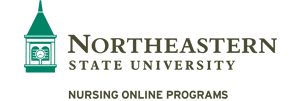Patient care relies increasingly on technological tools. Because healthcare facilities have invested heavily in these platforms, they want to maximize each system’s effectiveness when collecting data. For many institutions, this means hiring dedicated professionals, like informatics nurses, who employ project management strategies to improve system processes, manage existing technology and adapt data collection to suit their needs.
What Is Healthcare Project Management?
Healthcare project management is the “facilitation of the planning, scheduling, monitoring and controlling of all work that must be done to meet the project objectives,” according to Nurse Key. Informatics nurses use “knowledge, skills, tools and techniques … to meet specific scope, time, cost and quality project goals [as well as] meet the needs and expectations of the people involved in or affected by project activities.”
Informatics nurses will generally break the project management process into four distinct phases, says the Journal of Informatics Nursing:
- Initiation: This phase outlines the scope of the project and the needs to be addressed. Informatics nurses often conduct a SWOT analysis to assess the project’s strengths, weaknesses, opportunities and threats.
- Planning: The project breaks down into smaller tasks attached to specific goals or deadlines during this phase, also identifying the budget and key participants.
- Execution/control: This phase is for task completion. Informatics nurses must communicate with all participants and adhere closely to the predetermined timeline.
- Closing: After finishing all tasks comes a thorough assessment of the outcome. Leadership may use this information to alter processes or workflows.
How Are Project Management Concepts Used in Healthcare?
The healthcare industry faces countless challenges, but nursing informatics can address many of them. From seamlessly integrating technology into nursing workflows to maintaining the integrity of captured data, informatics nurses regularly apply project management concepts. Consider these examples:
Data capture: Amid the greater reliance on electronic health records, telehealth and remote monitoring, one of the primary responsibilities of today’s informatics nurses is to ensure data is accurately captured, stored and retrieved. Using the four phases of project management, informatics nurses can verify that new and existing data collection processes achieve these objectives.
System processes and workflows: Healthcare IT solutions should not be cumbersome for end-users, including patients, nurses and providers. When introducing a new workflow, for example, informatics nurses can use the project management principles to define metrics to gauge the success of system implementation. These metrics may confirm the satisfaction of the end-users’ needs, ensure others know how to use the new technology or identify inefficiencies in the system.
Research: Evidence-based practice requires a commitment to ongoing research and improvement. The quantity of data housed in healthcare information systems must be synthesized in such a way as to deepen understanding and assist in decision-making. Informatics nurses use a methodical approach to analyze this data, identify trends and implement new processes, workflows or targeted nursing interventions.
Timely information exchange: Informatics provides timely, accurate information ideal for rapid response to emerging problems. This capability was apparent at the onset of the pandemic when, according to the American Medical Informatics Association, nursing informatics helped determine best practices by expediting “systematic responses to a host of issues [including] creating terminologies, tracking and predicting outbreaks, ensuring practitioners’ personal safety, establishing telemedicine systems and using AI to develop new diagnostics and treatments.”
How Do Informatics Nurses Gain Project Management Skills?
Project management is a unique skill set, particularly when applied to healthcare information technology. Nurses interested in the field will benefit from graduate-level education that offers hands-on learning. Northeastern State University’s online RN to MSN in Nursing Informatics program prepares students to design and manage robust information systems, safely handle data and conduct quantitative and qualitative research. A 200-hour practicum with a mentor provides direct experience.
Nursing informatics has the potential to address some of healthcare’s most pressing challenges. By applying project management strategies to these problems, informatics nurses can devise data-driven solutions.
Learn more about Northeastern State University’s online RN to MSN in Nursing Informatics program.


